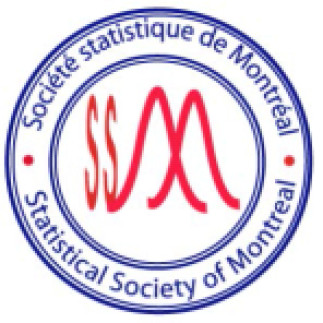La Société statistique de Montréal (SSdeM) organise un programme double de présentations sur les modélisations par équations structurelles, le vendredi 25 novembre 2016.
14h00 - New developments in mediation analysis Rex B. Kline de l'Université Concordia, viendra discuter du modèle de médiation qui est le plus simple des modèles par équations structurelles. Il est l’auteur de nombreux articles en psychologie,de deux livres:Principles and Practice of Structural Equations Modeling(4e éd.,2016) et Beyond Significance Testing(2e éd.,2013). Il a obtenu son Ph.D. de la Wayne State University en 1984. Il est un conférencier recherché.
Résumé
Mediation analysis is popular,but many, if not most, mediation studies are based on inadequate designs or analysis strategies. Described in this presentation are requirements and analytical methods for a more scientifically rigorous approach tomediation analysis.Topics include proper research designs for establishing mediation, a reduced role for significance testing,and the need for better awareness byresearchers of all this is assumed in mediation studies. The methodof Causal Mediation Analysis, whichestimates mediation under more realistic assumptions, is introduced. The talk will focus on applications and practice.
15h00 - An Introduction to Generalized Structured Component Analysis Heungsun Hwang de l'Université McGill, nous introduira au Generalized structured component analysis et à la librairie R qu'il a développé pour utiliser cette modélisation. He is interested in the development and applications of quantitative methods and advanced modeling methodologies to diverse issues and topics in psychology and various fields. After his undergraduate studies in South Korea, he obtained his Ph.D. (Quantitative Psychology, 2001) at McGill University. He is the author of a book on the topic below, and of more than 50 articles.
Résumé
Generalized structured componentanalysis (GSCA) was developed as a component-based approach to structural equation modeling. It has advantages over another long-standing component-based approach-partial least squares (PLS).Owing to the adoption of a single optimization criterion, GSCA can conduct complex analyses,such as constrained multi-group analysis and testing latent interaction effects,in a more coherent manner. I will provide an introductory account of this methodology,and examples with my own R package on the topic.

